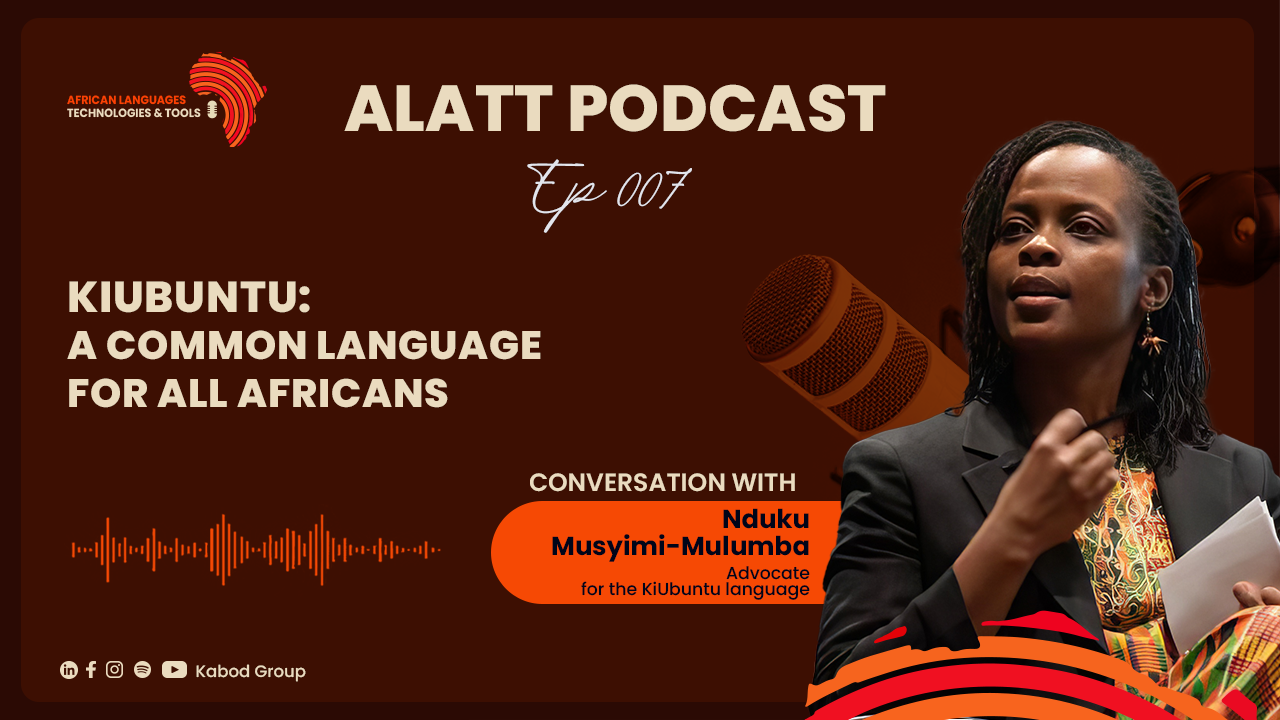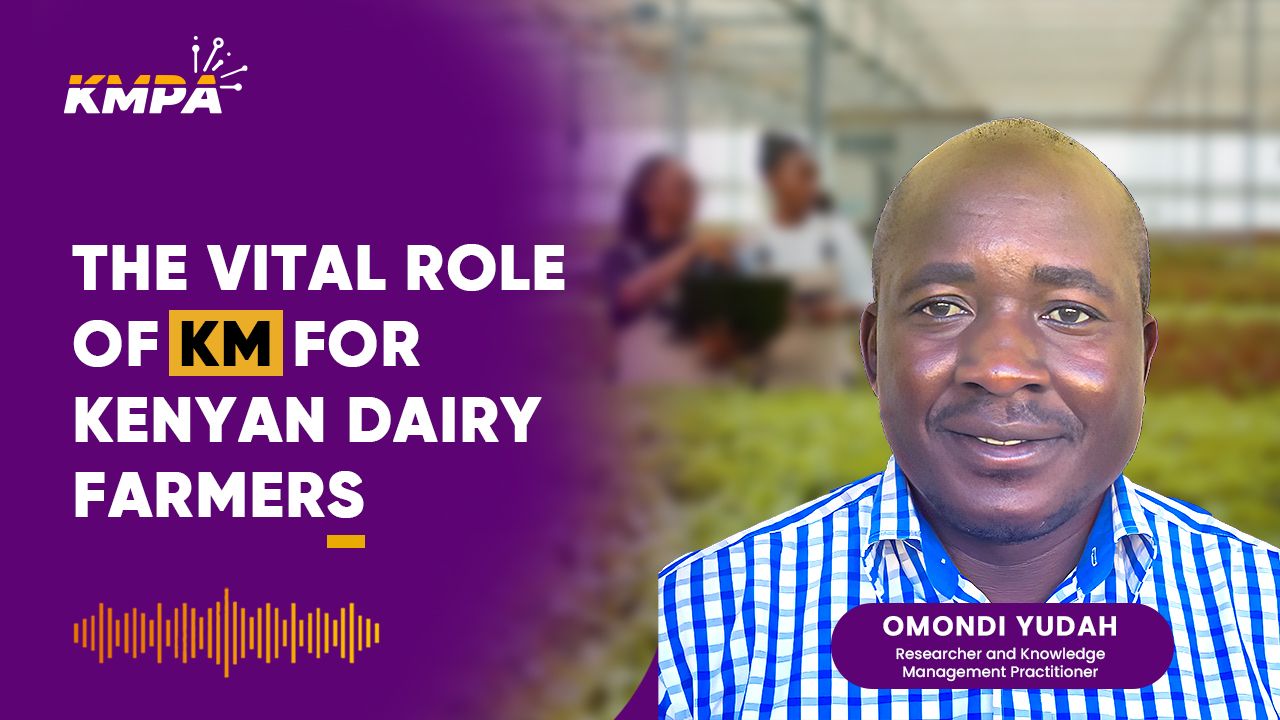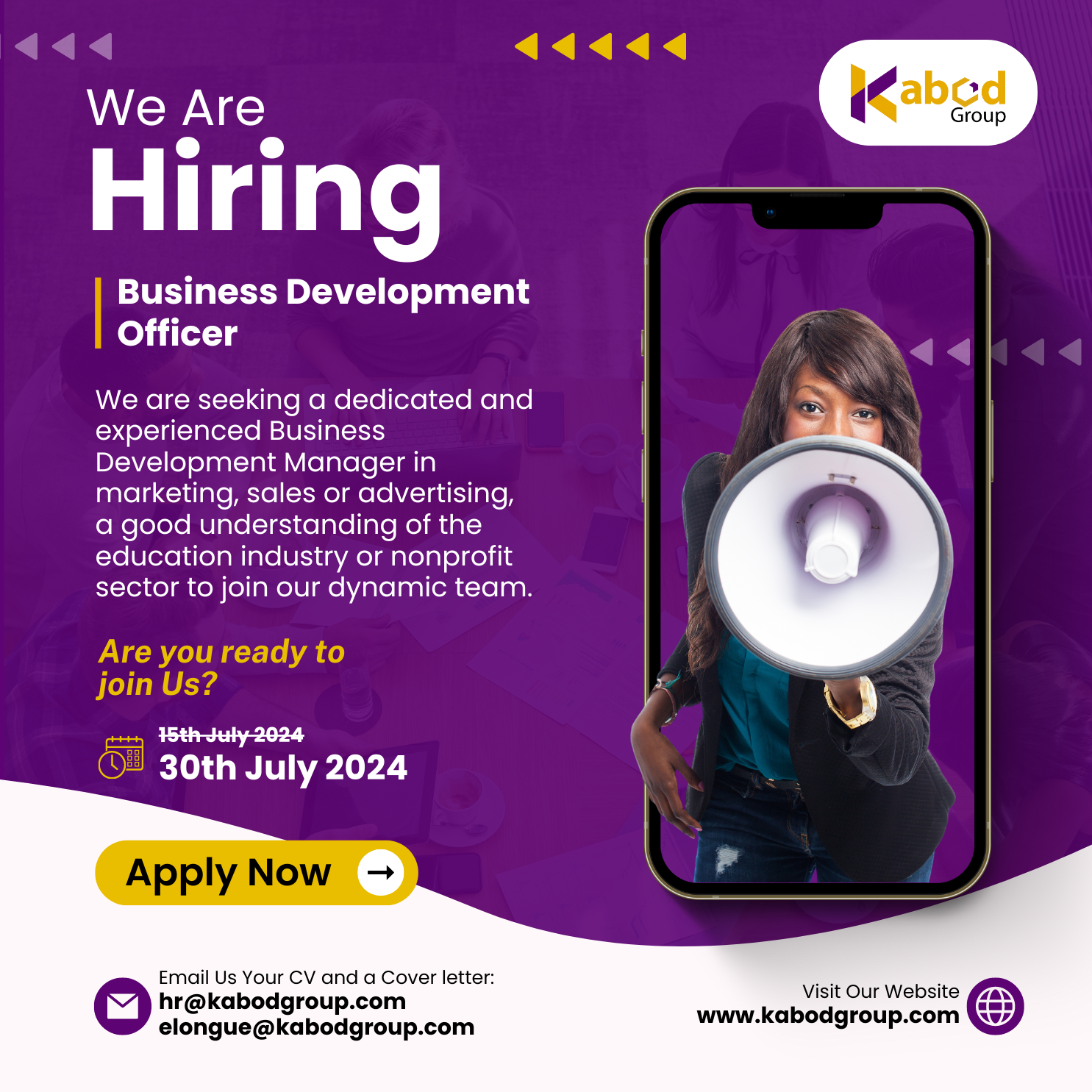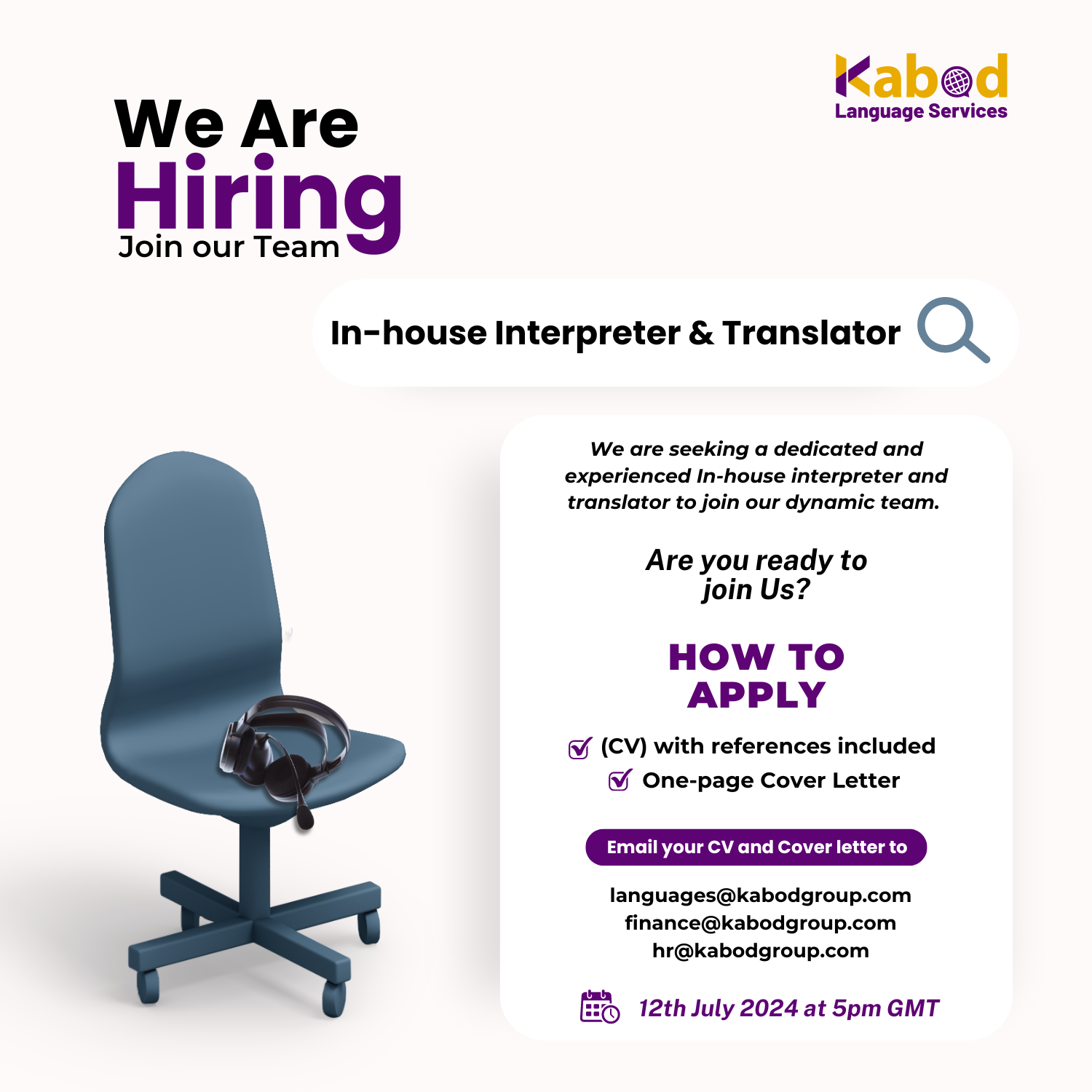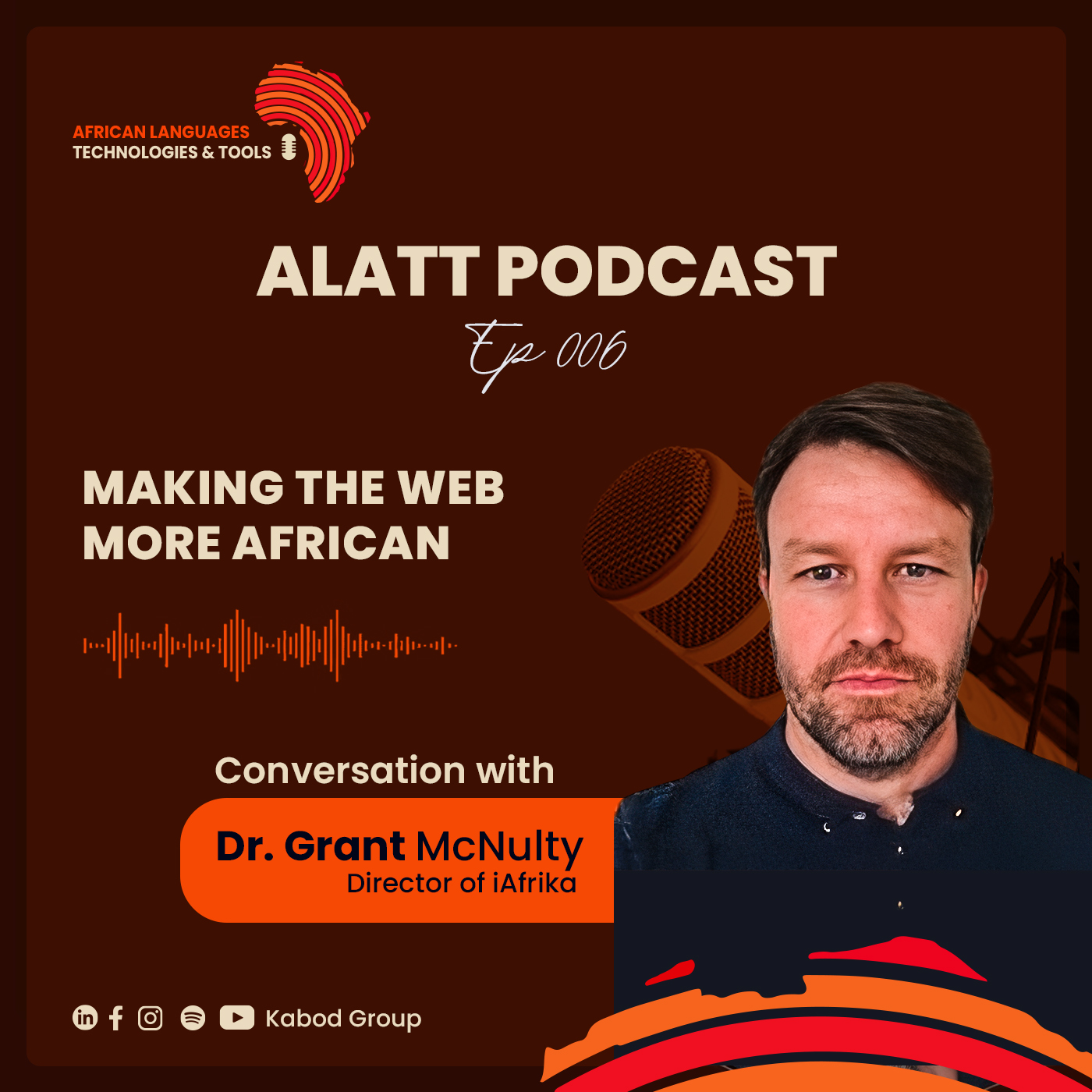
The language industry in Africa is full of untapped opportunities. Kabod has ventured on a journey of identifying, documenting and highlighting inspiring stories and innovative projects from entrepreneurs, researchers and freelancers in the translation, interpretation and natural language processing communities. The final goal is to celebrate African professionals in the language industry and facilitate knowledge and experience sharing.
Ms. Gisèle Ouedragogo is a translator and CEO of Ubuntu Language services in Burkina Faso. Her working languages are French, English and Mooré which is her mother tongue. She loves Africa and African languages. She always looks for opportunities to learn new things and is quite open minded and invested into various fields.
Kabod: What attracts you to the role of translator ? What does translating mean to you?
Most people have a clear idea of the profession they want to pursue from a young age. As far as I am concerned, this was a bit more complex. Of the various fields I was interested in, including journalism, law, diplomacy, humanitarian work etc, the choice was rather difficult. This may sound rather casual, but it is due to my desire to be useful wherever I am. Now I would say that translation is what fate has found best to allow me to realise my dreams. By translating texts from different fields, I can put myself in the shoes of a journalist, a lawyer, a diplomat , a humanitarian and so on.
I really love this feeling of being unlimited. What I find most exciting about translation is the knowledge that you gain each time you translate a text. Translation is a permanent learning school.
Kabod: How did you start your career in the translation industry?
I started as a freelance Translator while preparing for a Master’s Degree of Arts in Translation at the Pan University studying Translation, Interpreting and Intercultural Communication Programmes (PAUTRAIN).
Then, I was volunteering for organisations such as TranslaAfricantors without Borders. It was quite rewarding because I had the opportunity to put into practice the theoretical knowledge I had acquired in the courses, and to apply the best professional practices I was taught by my lecturers.

Kabod: What are your hopes for your language and culture?
The reality is that even though there is a high demand in terms of translation or interpretation services involving local languages, professionals are rarely consulted. In most cases, any native speaker will be asked to perform the work.
I really hope that decision-makers will make decisions which value our cultures and promote the use of our local languages.
Kabod: How does your native language affect your fluency in other languages
The impact is not noticeable in writing. However, when it comes to speech, my native language makes it hard for me to get the right pronunciation of some words in French and in English. This is due to the fact that some French, and especially English sounds do not exist in my mother tongue.
Kabod: What are some of the relevant initiatives you are working on?
After graduation from PAUTRAIN, together with some colleagues, I co-founded a language service provisions agency, Ubuntu Language Services. Our working languages include African languages. We hope to contribute to the promotion of African Languages and cultures.
Kabod: Can you share some success stories of translation projects involving (your) language(s)? How have they impacted your community?
Till date, I have never had the opportunity to work on a translation project involving my mother tongue Mooré or any of our local languages. As I said earlier, most of the time, when local languages are involved in a project, the clients do not see the necessity to call on a professional. They will simply work with someone who can speak the language. This attitude certainly does not help.
Kabod: How do you market yourself and your services as a translator?
We have a website for Ubuntu Language Services. Then, I wrote and posted a clear and detailed resume on various translators’ platforms, I registered on the websites of international organisations as well as renowned translation agencies. I also use social media for personal branding.
Kabod: How can African translators position themselves to better tap opportunities in the global language industry?
I would suggest African translators to be really active on online language fora, interacting with other language service providers and to regularly check international organisations websites for opportunities.
Kabod: How did you get your first contract? What strategies do you use to increase your pool of clients while maintaining the existing ones?
I got my first contract with an online translation agency where I applied while I was still a Trainee Translator .
In the translation industry, finding clients is quite difficult, but keeping them is harder. You can only keep clients who are satisfied with your services.
Therefore, translators should focus on delivering quality services that respect clients requirements and meet deadlines. It’s also important to always ask clients for feedback whenever they complete a job. Some positive feedback can be posted on social media platforms for personal branding. If it’s negative, then I will know what to improve.
Kabod: Do you have any translation topics or areas that you specialise in? Why those topics?
No. For the time being, I work on general topics. But I particularly like working on humanitarian content. It might be my future area of specialisation.
Kabod: How do you leverage technology to facilitate your work as a translator?Do you use Computer Assisted Translation tools? Which one do you prefer and why?
Technology undoubtedly facilitates Translators’ work. Looking for clients, marketing yourself as well as the translation process become easy and fast thanks to technology.
Of course I use CAT tools. My favourite ones are SDL Trados and Fluency. But some translation agencies and international organisations have their own CAT tools for their translation tasks.
Kabod: Do you think there is a viable market for African languages translation/interpretation?
Yes, there is a growing translation market for African languages due to globalisation. However, African languages translators should be ready to face challenges related to multilingualism, lack of resources and poor infrastructure.
Kabod: What are the three top pieces of advice that you will share with a budding translator from Africa?
First, I would recommend them to privilege networking. A large and rich network is an advantage when it comes to personal branding, finding clients and learning from others’ experience.
Secondly, they should always ensure quality services are provided. As the famous Professor of International Marketing, Philip Kotler, so rightly put it, “The best advertising is done by satisfied customers.”
In addition to that, with the advent of technology, it is important to always be at the cutting edge of technology. Translators must be computer-literate, master Computer- Assisted Translation tools and information search tools and strategies.
Kabod: How do you envision the future of translation in African languages?
With the growing awareness of African languages and their use as well as the promotion of African cultures, I am optimistic about the future of translation in African languages. There is a growing need for Translation from and into African Languages and many research projects are being conducted in that regard. domain.
Thanks, Ms. Gisèle, for your time and for sharing your experiences with us.
Are you also in the language industry in Africa? Would you also like to be featured in our Knowledge Exchange Series, which highlight the journey and experiences of African language translators, interpreters, computational linguists etc.,? Then, reach out to languages@kabodgroup.com to express interest.

Grace Emmanuella Amah Yoboué is currently working at Kabod Group International as an Executive Assistant and a Translation Officer. She is studying translation in Ghana and is also a member of the Network of African Languages Translators and Teachers (ALATT).


